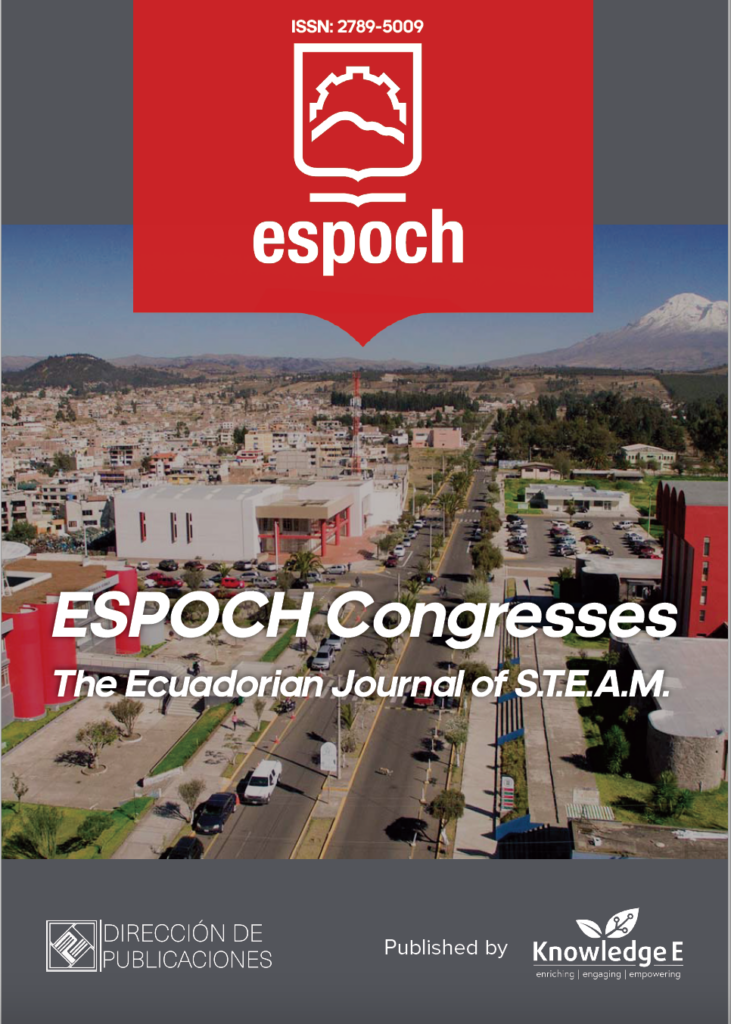
ESPOCH Congresses: The Ecuadorian Journal of S.T.E.A.M.
ISSN: 2789-5009
Leading Ecuadorian research in science, technology, engineering, arts, and mathematics.
Whey Revalorization through the Development of Spreadable Cheeses
Published date:Jun 14 2022
Journal Title: ESPOCH Congresses: The Ecuadorian Journal of S.T.E.A.M.
Issue title: Volume 2, Issue 1
Pages:228 - 244
Authors:
Abstract:
The whey from small cheese factories is commonly discarded or used for animal feed, altering the environment and wasting a source of nutrients that can be used as human food. Therefore, the use of byproducts and local inputs are viable alternatives for the development of marketable products, increasing the sustainability of dairy industries. The aim of this work was to develop a spreadable cheese from whey, similar to a leading brand of cheese in the Argentine market, using national ingredients. A factorial design of two factors (modified starch and gelatin) with three levels of concentration (0.5, 0.7, and 0.9%) was used. The responses evaluated were: (i) colorimetric characteristics (CIElab: L*, a*, b*, C*
References:
[1] Pirola MB, Paez R, Massera A. Aplicación biotecnológica del lactosuero para alimentación animal. Lácteos Informa. 2015;7:3.
[2] Guajardo C. Código alimentario Argentino. Buenos Aires. ANMAT; 2020.
[3] Schaller A. Sueros de lechería. Revista Alimentos Argentinos. 2009;44:20-24.
[4] Chanfrau JM, Pérez J, Fiallos MV, Intriago LM, Toledo LE, Guerrero MJ. Valorización del suero de leche: Una visión desde la biotecnología. Bionatura. 2017;2:468-476.
[5] .González M, Juliano P, López T et al. Valorización del lactosuero. 1st ed. Muset G, Castelles ML, editors. Argentina: Ediciones INTI; 2017.
[6] .Terán JC, Paez R, Pirola MB, Schmidt E. Características generales sobre el uso del suero de queso en la provincia de Santa Fe. Argentina: INTI-INTA; 2012.
[7] .Hernández S. Elaboración de un manual de procesos y productos de una industria del queso [Tesis de maestría]. Ingenierías Agrarias, Palencia. Universidad de Valladolid. España, 2016.
[8] .Fox PF, Guinee TP, Cogan TM, McSweeney PLH. Fundamentals of cheese science. 2nd ed. Nueva York: Springer; 2017.
[9] .Chavan RS, Jana A. Cheese substitutes: An alternative to natural cheese - A review. Int. J. of Food Science, Technology & Nutrition, Vol. 2. 2007;2:25-39.
[10] .Chaparro J, Valencia JU, Molina DA. Efecto de la adición de dos tipos de almidones en las propiedades texturales de queso análogo. Revista Facultad Nacional de Agronomía Medellín. 2015;68:7545-7555.
[11] .Guinee TP, Caric M, Kaláb M. Cheese: Chemistry, physics and microbiology. 3rd ed. Fox PF, McSweeney PLH, Cogan TM, Guinee TP, editors. Londres: Elsevier Ltd; 2004.
[12] .Bachmann HP. Cheese analogues: A review. International dairy journal. 2001;11:505- 515.
[13] .Joyner MHS, Damiano H. Influence of various hydrocolloids on cottage cheese cream dressing stability. International Dairy Journal. 2015;51:24–33.
[14] .Brighenti M, Govindasamy-Lucey S, Jaeggi JJ, Johnson ME, Lucey JA. Behavior of stabilizers in acidified solutions and their effect on the textural, rheological, and sensory properties of cream cheese. Journal of Dairy Science. 2020;103:2065-2076.
[15] .Yousefi M, Jafari SM. Recent advances in application of different hydrocolloids in dairy products to improve their techno-functional properties. Trends in Food Science & Technology. 2019;88:468-483.
[16] .Simionescu B, Ibanescu SA, Danu M, Rotaru I, Ibanescu C. Rheology of gelatin - starch systems. Influence of system composition. Revista de Chimie. 2013;64:909- 913.
[17] .Liu H, Xu XM, Guo SD. Rheological, texture and sensory properties of lowfat mayonnaise with different fat mimetics. LWT-Food Science and Technology. 2007;40:946-954.
[18] .Macdougall D. Colour Measurement. Gulrajani ML, editor. Cambridge. Woodhead Publishing; 2010.
[19] .Derringer G, Suich J. Simultaneous optimization of several response variables. J. Qual. Technological Science 1980;12:214-219.
[20] .Statgraphics. Diseño de experimentos - Optimización de múltiples respuestas. Manual STATGRAPHICS Centurion XV. Estados Unidos: StatPoint Technologies, Inc; 2006.
[21] .Perduca MJ, Spotti MJ, Santiago LG, Judis MA, Rubiolo AC, Carrara, CR. Rheological characterization of the hydrocolloid from gleditsia amorphoides seeds. LWT-Food Science and Technology 012;51:143-147.
[22] .Fiszman SM, Lluch MA, Salvador A. Effect of addition of gelatin on microstructure of acidic milk gels and yoghurt and on their rheological properties. International dairy journal, 1999;9:895-901.
[23] .Pang B, Wang S, Chen W, Hassan M, Lu H. Effects of flow behavior index and consistency coefficient on hydrodynamics of power-law fluids and particles in fluidized beds. Powder Technology. 2020;366:249-260.
[24] .Rozycki SD, Seguro EF. Yogur: Cuantificación e influencia de los parámetros reológicos. Revista Argentina de Lactología. 1995;11:39-57.
[25] .Supavititpatana P, Wirjantoro T, Apichartsrangkoon A, Raviyan P. Addition of gelatin enhanced gelation of corn–milk yogurt. Food Chemistry 2008; 106: 211–216.
[26] .Gunasekaran S, Ak MM. Cheese Rheology and Texture. 1st ed. Nueva York: CRC Press; 2002.
[27] .Considine T, Noisuwan A, Hemar Y, Wilkinson B. Rheological investigations of the interactions between starch and milk proteins inmodel dairy systems: A review. Food Hydrocolloids. 2011;25:2008-2017.
[28] .Ørskov KE, Christensen LB, Wiking L, Hannibal T, Hammershøj M. Imitation cheese – New insights to relations between microstructure and functionality. Food Structure. 2021;29:1-10.
[29] .Agyemang PN, Akonor PT, Tortoe C, Johnsona PNT, Manu-Aduening J. Effect of the use of starches of three new ghanaian cassava varieties as a thickener on the physicochemical, rheological and sensory properties of yoghurt. Scientific African. 2020;9:1-10.
[30] .Pizarro RD. Películas y recubrimientos comestibles nanocompuestos con matriz de gelatina: Caracterización física y comportamiento al impacto en vegetales con diferente energía libre de superficie [Tesis doctoral]. Chile: Universidad de Santiago de Chile; 2014.